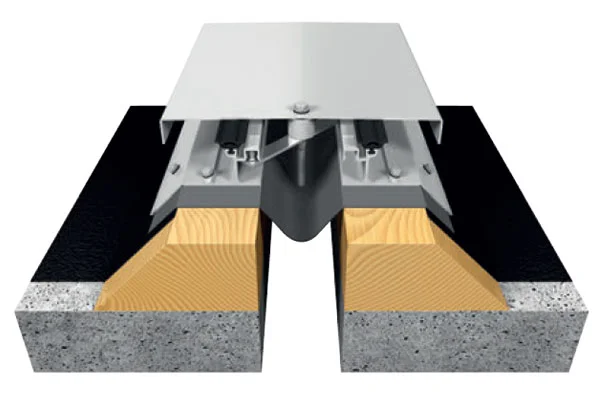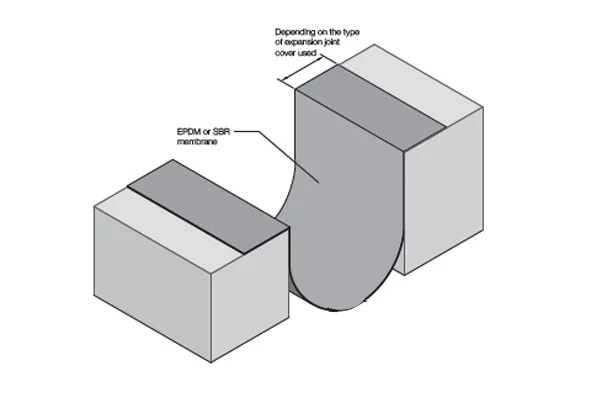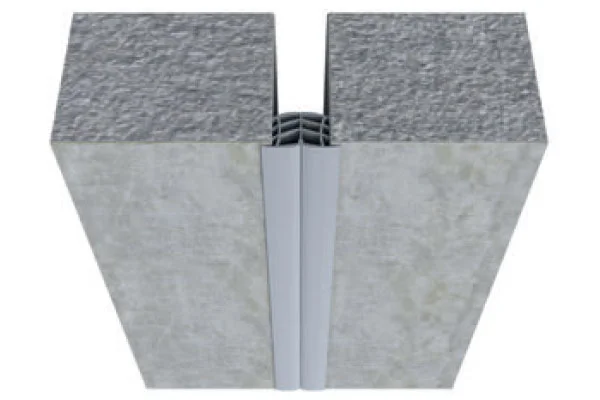

Key Takeaways
- Ask contractors about their experience with different waterproofing methods and standards.
- Request examples of past projects to understand their capabilities in waterproofing.
- Inquire about the materials they plan to use and their suitability for your specific needs.
- Discuss the rationale behind the selected waterproofing method and its trade-offs regarding cost and durability.
- Confirm the quality control process to ensure reliability of the chosen waterproofing method.
Understanding Waterproofing Basics
Diving right into the basics, waterproofing is a must-have defense for your property. It shields your structure from water damage, maintaining its integrity and value.
But hold on, this isn’t about slapping on a coat of water-resistant paint and calling it a day. That’s one of the common misconceptions about waterproofing.
Proper waterproofing adheres to specific standards, ensuring a robust, durable defense against moisture. Waterproofing standards encompass a range of factors, including the type of materials used, the application methods, and the areas targeted for protection.
They’re not merely guidelines; they’re crucial requirements to safeguard your property effectively.
Another fallacy is that all waterproofing methods are the same. That’s far from the truth.
There are various types of waterproofing, each suitable for different parts of your property. Some are ideal for roofs, others for basements, and some for outdoor spaces. Understanding these differences is essential.
Importance of Contractor Communication
Grasping waterproofing techniques is essential, but equally important is knowing how to communicate effectively with your contractor.
Clear conversations can prevent misunderstandings and guarantee your project’s success.
Let’s explore how to facilitate these important discussions for your waterproofing project.
Understanding Waterproofing Techniques
Waterproofing your property—now there’s a project that demands your attention. It’s not just about keeping your basement dry, but ensuring the structural integrity of your home. Understanding waterproofing techniques can help you communicate effectively with your contractor.
There are two primary methods of waterproofing: drainage solutions and moisture barriers. Drainage solutions involve diverting water away from your home, while moisture barriers work by stopping water from penetrating the structure.
Here’s a simple breakdown of these methods:
| Technique | How It Works | Why It’s Important |
|---|---|---|
| Drainage Solutions | Diverts water away from property | Prevents water damage and structural issues |
| Moisture Barriers | Stops water from penetrating structure | Protects the structure and interior from dampness |
When talking to contractors, you’ll want to ask about these methods. What solutions do they recommend for your home? How will they implement them? Understanding these techniques will allow you to have more informed discussions with your contractor.
Effective Contractor Conversations
Armed with knowledge about waterproofing techniques, it’s time to have some candid conversations with potential contractors. Remember, communication is key. Be clear, concise, and confident as you discuss your project details.
Effective listening is vital. It guarantees you grasp the contractors’ explanations and plans fully. Don’t just hear their words – absorb them, ask probing questions, and seek clarifications. This won’t only demonstrate your engagement but also help you make an informed decision.
Your proactive engagement is equally important. Share your thoughts, ideas, and expectations. It’s your project, after all. Don’t shy away from expressing your concerns or doubts. A good contractor will appreciate your interest and involvement. They’ll be more than willing to address your queries and provide the necessary details.
Regular, open communication can also help alleviate potential misunderstandings and conflicts. Stay connected, update each other on progress, and share feedback. This will foster a strong contractor-client relationship, guaranteeing a smoother workflow and a successful project outcome.
Ensuring Project Clarity
While discussions and effective listening play a major role in understanding your contractor’s plans, it’s equally important that they fully comprehend your project expectations. This two-way communication aids in risk management, ensuring that both you and the contractor are on the same page.
Make certain that your contractor understands the specifics of your project, like the desired completion date, budget limitations, and the overall purpose of the waterproofing. Don’t assume they’ll automatically know your vision – take the time to spell it out clearly. This helps to eliminate any misunderstandings and mitigates the risk of unexpected issues cropping up during the project.
Encourage your contractor to ask questions. This not only shows their interest in your project but also helps to clarify any areas of uncertainty.
Be open and honest in your responses, as this will foster a positive working relationship.
Preparing Your Questions
Now that you’re aware of the importance of contractor communication, let’s prepare your questions.
You’ll need to understand different waterproofing methods to ask informed questions.
With the right queries, you can guarantee you’re getting the best service for your project.
Understanding Waterproofing Methods
Diving into the world of waterproofing can be a bit intimidating at first. There’s a lot to learn, especially with all the waterproofing innovations and common misconceptions floating around. But don’t worry, you’re not alone. We’re here to help simplify things and break them down into bite-sized pieces.
Here’s a quick table to help you understand the basics:
| Waterproofing Methods | Highlights |
|---|---|
| 1. Liquid Waterproofing Membrane | Easy to apply, flexible, high durability |
| 2. Bituminous Coating | Excellent waterproofing, protective coating, not suitable for sunlight exposure |
| 3. Cementitious Waterproofing | Easy to use, rigid type, doesn’t accommodate movements |
| 4. Bituminous Membrane | Ideal for low-sloped roofs, long-lasting |
| 5. Polyurethane Liquid Membrane | High flexibility, used for flat roofs, expensive |
Each method has its strengths and weaknesses, and what works best would depend on your specific needs. It’s important to ask contractors about the method they plan to use and why. This will not only show your initiative but will also help you grasp the concept of waterproofing better. Remember, the more you understand, the better you can make informed decisions. So, don’t shy away from learning. After all, knowledge is power.
Formulating Effective Queries
Question crafting is an art that can turn the tide in your favor when discussing your waterproofing needs with contractors. The right questions not only shine light on the contractor’s experience but also their adherence to waterproofing standards.
Start by asking about their experience in the field. A contractor with extensive experience will likely have encountered and dealt with a wide variety of situations, giving them a deeper understanding of the task at hand.
Don’t shy away from inquiring about their understanding of waterproofing standards. It’s important that the contractor you select is well versed in the latest industry standards and practices.
To help, here’s a list of questions:
- Can you share examples of similar projects you’ve completed?
- How do you keep updated with the latest waterproofing standards?
- What challenges have you faced in past projects and how did you overcome them?
- Can you explain your process for ensuring quality control?
Lastly, remember, you’re not being nosy. You’re being thorough.
And a good contractor will appreciate your due diligence, because they know it’s a sign that you’re serious about getting the job done right.
Asking About Waterproofing Materials
When you’re dealing with contractors, it’s essential to ask about the materials they’ll use for waterproofing. This isn’t just about knowing what’s going into your project; it’s about understanding your waterproofing options and ensuring they’re using materials that match your needs.
Start by asking them for a list of materials they plan to use. This will give you a basic idea of what to expect.
Next, explore further by asking about material durability. How long can you expect these materials to last? Are they resistant to environmental factors like extreme temperatures or UV radiation?
You’ll also want to ask if the materials are certified for use. This means they’ve been tested and proven to be effective at waterproofing. If the contractor can’t provide this information, it’s a red flag.
Inquiring About Methodology Details
Knowing the waterproofing methods your contractor intends to use is just as essential as understanding the materials they’ll be using.
Method selection isn’t just a matter of preference; it’s closely tied to the project requirements. Consequently, it’s important to ask your contractor about their waterproofing methodology.
To do this effectively, you need to ask specific questions. Here are some ideas to help you get started:
- What waterproofing methods are you considering for my project and why?
- How does each method meet the specific project requirements?
- Are there any trade-offs between the methods regarding cost, durability, or application ease?
- How will the chosen method affect the overall project timeline?
Discussing Project Timeline
As you gain clarity on the waterproofing methods your contractor plans to use, you’ll naturally need to understand how these choices will impact the project timeline. Knowing when critical project milestones are expected to take place will help you manage your timeline expectations effectively.
Discuss the overall projected timeline with your contractor. Ask them to highlight key milestones and provide approximate dates for each. Also, request a rundown of how potential weather conditions, material delivery delays, or unexpected findings could affect the schedule. This will give you a realistic idea of the project timeline.
Here’s a simple table you can use to track project milestones and their expected completion dates:
| Project Milestone | Expected Completion Date |
|---|---|
| Start of Waterproofing | date |
| Mid-Way Checkpoint | date |
| Project Completion | date |
This table will help you keep track of the project’s progress and how well the contractor is adhering to the agreed-upon timeline. Remember, it’s your right to be kept informed about all aspects of the project, including the timeline.
Evaluating Contractor’s Expertise
How can you gauge your contractor’s expertise in waterproofing? It’s not enough to rely on their word. You need to dig deeper to verify they’re qualified.
Look for contractor certifications. Certified contractors have proven their knowledge by passing rigorous tests. It’s a good indication that they’re up-to-date with the latest methods and codes.
Industry experience is also essential. The more experience they have, the more likely they’re to solve unexpected problems and complete your project successfully.
Here are some ways to evaluate your contractor’s expertise:
- Ask for their contractor certifications. If they’re certified, it shows a commitment to their craft.
- Check how many years they’ve been in the business. The longer, the better.
- Request references from past waterproofing projects. Follow up with these references to learn more about their experiences.
- Look at their past projects. Do they showcase a variety of waterproofing methods? A diverse portfolio indicates versatility and expertise.
Analyzing the Proposed Costs
Once you’ve gained confidence in your contractor’s expertise, it’s time to get down to the nitty-gritty: the proposed costs. It’s essential to understand the cost breakdown to guarantee pricing transparency. Don’t shy away from asking questions or seeking clarification.
Here’s a simple table to guide you:
| Cost Element | Why It Matters |
|---|---|
| Labor Costs | This is the cost of the manpower needed. It’s important to know how many people will be working and their rate per hour. |
| Material Costs | You should know exactly what materials will be used and their individual costs. This helps you understand if the contractor is using quality materials. |
| Miscellaneous Costs | These are often overlooked but can add up. They include transport, cleanup, and any other miscellaneous fees. |
Always remember, it’s not about seeking the lowest price, but guaranteeing you’re getting value for your money. So, scrutinize the proposed costs, understand where every penny is going, and make sure you’re comfortable with the cost breakdown before moving forward. Value for money is key, and transparency is its best friend.
Following Up Post-Project
Even after the waterproofing project is completed, your involvement doesn’t end there. It’s essential to perform a post-project evaluation to assess the quality of the contractor’s work. This involves checking the work done against your initial expectations and the contractor’s promises.
- Check for any signs of water leakage or dampness. If you spot any, it’s an indication that the waterproofing may not have been done thoroughly.
- Look for any signs of poor craftsmanship, such as sloppy finishes or use of substandard materials.
- Pay attention to how well the contractor cleaned up after the project. A professional should leave your property clean and free from debris.
- Be sure to review your contract and confirm all agreed-upon services were delivered.
After the evaluation, provide contractor feedback. This not only helps the contractor improve their service but also informs other potential customers about the contractor’s work quality.
If you’re satisfied with the work done, remember to appreciate their good work. If there were issues, don’t shy away from expressing your concerns. It’s your right as a client to demand high-quality services.
Frequently Asked Questions
What Is the Warranty Period for Your Waterproofing Service?
When you’re inquiring about the warranty period for a waterproofing service, it’s important to ask specifically about warranty coverage and service duration.
You could say, “Could you clarify the length and details of your warranty coverage? How long does your service duration typically last?
I’m particularly interested in understanding what’s included in the waterproofing service warranty.” This will give you a clearer picture of what to expect.
How Does Weather Affect the Effectiveness of the Waterproofing Method?
Weather considerably impacts the effectiveness of waterproofing.
If you’re in an area with high moisture retention, it can challenge the durability of the waterproofing.
Temperature fluctuations also affect its performance. For instance, extreme cold can cause cracking.
So, when you’re discussing with contractors, ask how their waterproofing method holds up against these factors.
They should provide details about the resilience and longevity of their method under various weather conditions.
Are Your Waterproofing Methods Environmentally Friendly?
Absolutely, we’re committed to using eco-friendly materials in our waterproofing methods.
Our team prioritizes sustainable practices, guaranteeing we’re not only creating a waterproof barrier, but also preserving the environment.
We’re very aware of the impact our industry can have, so we ascertain our materials and methods don’t harm the environment.
We’d be happy to provide more details on the specific materials we use if you’re interested.
Do You Offer Any Maintenance Services Post Waterproofing?
Yes, you’re in luck! We do offer maintenance services post waterproofing.
It’s essential to keep your waterproofing systems in top shape. We recommend regular check-ups every six months.
As for costs, they’re quite reasonable and depend on the complexity of your system.
We’re always here to help you maintain the durability of your waterproofing, ensuring it remains effective for years to come.
Can I Stay in the House During the Waterproofing Process?
Yes, you can stay in the house during the waterproofing process.
However, it’s vital to maintain open communication with your contractor about safety precautions. They’ll likely have specific guidelines or recommendations to guarantee your safety.
Remember, every project’s different, so it’s important you’re comfortable with the process and understand what’s happening.
Don’t hesitate to ask your contractor any questions about the waterproofing safety procedures they’re following.
Conclusion
So, don’t shy away from asking detailed questions when hiring a waterproofing contractor. Knowing their recommended materials, methods, timelines, and costs will help you make an informed decision. Evaluate their expertise based on previous projects. Remember, it’s your property, and a well-informed choice will save you time and money in the long run. Keep the dialogue open, even post-project, to guarantee your waterproofing needs are met efficiently and effectively.









